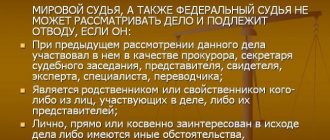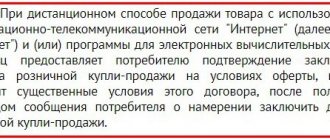Since October 1, 2019, Part 3 has been introduced into Article 56 of the Code of Civil Procedure of the Russian Federation “The Obligation of Evidence”, which states that “every person participating in the case must disclose the evidence to which he refers as the basis for his claims and objections to other persons, participating in the case, within the period established by the court, unless otherwise established by this Code.”
This rule of law is new for civil proceedings, however, a similar rule existed and exists in the Arbitration Procedure Code of the Russian Federation. According to Part 3 of Article 65 of the Arbitration Procedure Code of the Russian Federation, “each person participating in the case must disclose the evidence to which he refers as the basis for his claims and objections to other persons participating in the case before the start of the court hearing or within the time limit, established by the court, unless otherwise established by this Code.”
Despite the presence of the concept of “disclosure of evidence” in these articles, this concept itself and its characteristics are not disclosed in the legislation.
The Supreme Arbitration Court of the Russian Federation tried to eliminate this gap in legislative regulation. Thus, in paragraph 16 of the Resolution of the Plenum of the Supreme Arbitration Court of the Russian Federation dated December 20, 2006 N 65 “On preparing the case for trial” the following explanations were given:
“Disclosure of evidence should be understood as the presentation by a person participating in the case, on his own initiative and at the proposal of the court, to other persons participating in the case and to the court of all evidence available to him, on the basis of which the circumstances justifying his demands and objections can be established. Disclosure of evidence involves not only its presentation and exchange of pleadings, but also its designation, accompanied by a petition for the court to demand the necessary evidence.
Evidence must be disclosed by persons participating in the case within the period established by the judge in agreement with the persons participating in the case.
Failure to submit or untimely submission of evidence for unjustified reasons, aimed at delaying the process, may be regarded by the arbitration court as an abuse of procedural rights. If such circumstances exist, the court has the right, in accordance with Part 2 of Article 111 of the Arbitration Procedure Code of the Russian Federation, to attribute all or part of the legal costs, regardless of the results of the consideration of the case, to the person who is abusing his procedural rights, which is advisable to warn the parties about during the preparation of the case for trial.”
The legal doctrine offers the following options for understanding the term under discussion:
“.. The disclosure of evidence should be understood as the activities of persons participating in the case, within the framework of any type of proceedings and for any category of cases, in advance (timely), before the start of the main court hearing, familiarization of other persons participating in the case with all evidence, on which they refer to as the basis for their claims or objections, for communicating to the persons participating in the case information about the presence and main content of evidentiary material, on the basis of which the circumstances justifying the person’s demands or objections can be established (designation of evidence), for transfer to the persons participating in the case, pleadings, copies of evidence, regardless of whether other persons participating in the case have this evidence, as well as the activities of the judicial authorities to provide the opportunity for persons participating in the case to familiarize themselves in advance with the evidence available in the case materials , except for the exceptions to this rule established by federal law, with the onset of adverse procedural consequences for persons participating in the case in case of failure to comply with the established requirements.” (Kaiser Yu.V. Concept and signs of disclosure of evidence as a stage of judicial proof // Russian Judge. 2010. N 4. P. 37 – 40).
Disclosure of evidence “must be viewed as a procedure by which documents become known to the other party, and also as a procedure at some stage of which a party can become familiar with the contents of these documents.” At the same time, the author motivates this conclusion with the following: “it is difficult to agree with the statement that “disclosure of evidence is associated primarily with the exchange of pleadings and evidence by persons participating in the case.” The main difference between disclosure and other procedures is that disclosure must be the provision to persons participating in the case of information about the existence of certain documents related to the dispute under consideration (or that these documents existed, but were lost or destroyed) , as well as providing these persons with the opportunity to familiarize themselves with the contents of these documents. Information about the existence of documents should also include information about where and by whom these documents are stored, the name of the document and a description of the information contained in it.” (Lozovitskaya A.D. Disclosure of evidence as a tool of “procedural revolution” // Arbitration and civil process. 2021. N 5. P. 33 - 37.).
For other innovations in the procedural reform of 2021, see the review “ Important changes in the Code of Civil Procedure of the Russian Federation, the Arbitration Procedure Code of the Russian Federation and the CAS of the Russian Federation from October 1, 2019. ”
Lawyers were told about the new rules of evidence in legal proceedings
According to the press service of the FPA RF, on March 19, another webinar was held to improve the qualifications of lawyers. A lecture on the topic “Current problems of proof and evidence in civil and administrative proceedings” was delivered by acting. O. Head of the Department of Civil and Administrative Litigation at Moscow State Law Academy Sergei Mikhailov.
The speaker began his speech with general provisions related to evidence in civil and administrative proceedings. He drew attention to the important changes introduced by the Procedural Reform Law and their significant impact on the regulation of evidentiary activities.
Commentary on Article 56 of the Code of Civil Procedure of the Russian Federation in the new edition with amendments
The procedure for distributing the burden of proof in court is regulated by the commented article 56 of the Code of Civil Procedure of the Russian Federation in the new edition. This article defines one of the most important rules in court consideration of civil cases: the party that refers to them must prove the circumstances. The only exceptions are generally known facts. The most important consequences follow from this rule. If during the trial the plaintiff cannot prove the circumstances on which his claims are based, then the court will deny his claim.
According to Article 56 of the Code of Civil Procedure of the Russian Federation, as amended, the court not only has the right, but also the obligation to determine what circumstances are important for establishing the truth, and which party needs to prove them. In preparation for the consideration of the case, the judge establishes what circumstances are important for a comprehensive consideration of the claim, and distributes among the participants in the process what and which party must prove them.
In civil law there are two presumptions of guilt. Their essence is that the person who caused harm or violated obligations is recognized guilty in advance. And it is they who must prove in court the absence of guilt in their actions.
There are subtleties when considering cases of protection of honor and dignity. The plaintiff has the right to demand a refutation of information discrediting him if the defendant fails to prove in court that it is true. In other words, the plaintiff, on the basis of Part 1 of Art. 152 of the Civil Code of the Russian Federation must only prove that the defamatory information was disseminated by the second party, and the defendant is obliged to convince the court that the information is true.
Observing the principles of adversarial proceedings, the court does not have the right to collect evidence on its own initiative. In some cases, when a participant in the process cannot himself obtain the evidence necessary for an objective consideration of the case, the court meets him halfway and sends a written request (see comments to Art. Code of Civil Procedure of the Russian Federation). In cases that are considered in special proceedings (the court establishes important facts, for example, about inaccuracies and errors in documents), the court has the right, at its discretion, to send requests to the relevant authorities.
Violation of the principles of civil proceedings set out in Article 56 of the Code of Civil Procedure of the Russian Federation in the new edition leads to the cancellation of the court decision.
Article 56 of the Code of Civil Procedure of the Russian Federation - additional commentary
In Part 1 of Art. 56 of the Code of Civil Procedure of the Russian Federation, as amended, enshrines the general rule for the distribution of responsibilities for proof, which has existed in law for a long time, since the times of Roman law, and is expressed in the formula: “He who asserts proves.” This rule is formulated in relation to the obligations of the parties in an adversarial case, i.e. claim proceedings. However, an equal obligation to prove the grounds of his application lies with the applicant in cases of special proceedings and in cases of other non-claim proceedings, and on interested parties. The responsibility to prove the basis of their claims lies with the prosecutor who filed the claim in the interests of other persons (see comments to Article 45 of the Civil Procedure Code), and organizations, as well as individual citizens defending the rights of other persons (see comments to Article 46 of the Code of Civil Procedure).
The burden of proof is understood in a sense specific to civil procedural law. Duty in law is a measure of proper behavior, secured by a sanction in case of violation. In the rules of civil procedural law there are no special sanctions to ensure that the parties and other interested parties fulfill the obligation of proof. The driving incentive that encourages the parties to take active procedural evidence is the interest in obtaining a favorable decision. Monographic legal literature also substantiates the proposition that the obligation to prove is ensured by specific procedural sanctions, namely the reversal of an unjustified decision and other unfavorable procedural consequences.
The rules of substantive law associate the fulfillment of the burden of proof with favorable legal consequences for the party. For example, Art. 178 of the Civil Code provides that the party on whose claim a transaction is declared invalid has the right to demand from the other party compensation for expenses, loss or damage to its property if it proves that the error arose through the fault of the other party.
The burden of proof is distributed between the parties on the basis of the general rule specified in Part 1 of Art. 56 Code of Civil Procedure of the Russian Federation. Words in Part 1 of Art. 56 of the Code of Civil Procedure in the current version “unless otherwise provided by federal law” means the possibility of applying private rules contained in the norms of both procedural and substantive law. Most often, evidentiary presumptions are included in the rules of substantive law, which, in derogation from the general rule, place the burden of proving a fact or refuting it not on the party that claims it, but on the opposite one. In the norms of substantive civil law, the two most common evidentiary presumptions are:
- presumption of guilt of the harm-doer;
- presumption of guilt of the person who failed to fulfill the obligation or performed it improperly.
The norms of family and labor law also have presumptions that change the general rule of evidence. Thus, the origin of a child from parents who are in a registered marriage is certified by the parents’ marriage record. If the defendant in alimony cases considers the paternity record to be invalid, he has the burden of proving facts indicating the invalidity of the paternity record.
If a written agreement is concluded between the administration and the employee on the latter’s full financial responsibility for the valuables entrusted to him, then in the event of damage, he has the responsibility to prove the absence of guilt in causing damage or creating improper conditions on the part of the administration for storing valuables.
The grounds for exemption from proof are also provided for in Art. 61 Code of Civil Procedure of the Russian Federation.
The burden of proof is fulfilled by presenting evidence, filing motions to demand it, pointing it out to the court, i.e. reporting the location of evidence, familiarization with evidence available in a civil case, by participating in their study. Evidence is presented at any stage of the process before the court retires to the deliberation room to make a decision. You cannot refuse to accept a statement of claim or leave it without progress on the grounds of a party’s failure to provide evidence.
Contents of the commented article. 56 of the Code of Civil Procedure of the Russian Federation should be considered in the context of paragraph 3 of Art. 123 of the Constitution of the Russian Federation and Art. 12 of the Code of Civil Procedure of the Russian Federation, which establishes the principle of adversarial civil proceedings and the principle of equality of parties in the context of the transition of the economic system to a market economy. The role of the parties themselves in carrying out evidentiary activities, in asserting and protecting their rights is strengthening. The law excludes the rule on collecting evidence on the initiative of the court itself in the absence of petitions and requests from the disputing parties or the applicant for this.
Part 2 Art. 56 of the Code of Civil Procedure of the Russian Federation, as amended, fixes the duty of the court in relation to the subject of proof. The subject of proof is the totality of the legal facts of the basis for the claim and objections to it, as well as other facts that are important for the correct resolution of the case. The court determines the legal significance of the factual circumstances and explains to each party the obligation to prove them. In order to avoid the transition of legal proceedings to the principle of “formal truth,” the law established a rule that the court’s activities are complementary to the parties: the court must determine the full scope of legally significant facts in the case and bring them up for discussion if the parties, due to ignorance of the law or other reasons, do not refer to them. In this case, the court obliges the party to provide evidence in support of the relevant fact.
Absence in Art. 56 of the Code of Civil Procedure of the Russian Federation, the previously existing norm, according to which the court was not limited when considering and resolving civil cases to evidence presented by the parties, but collected it on its own initiative, does not mean that modern civil procedure in Russia is based on the principle of “formal truth” and the court should not achieve objective truth, i.e. correct judgments about the factual circumstances of the case. It is impossible to accept as a basis for procedural evidentiary activity the false statement found in scientific sources that, in connection with the changes in civil procedural law, “the court should not establish the truth in civil cases.”








